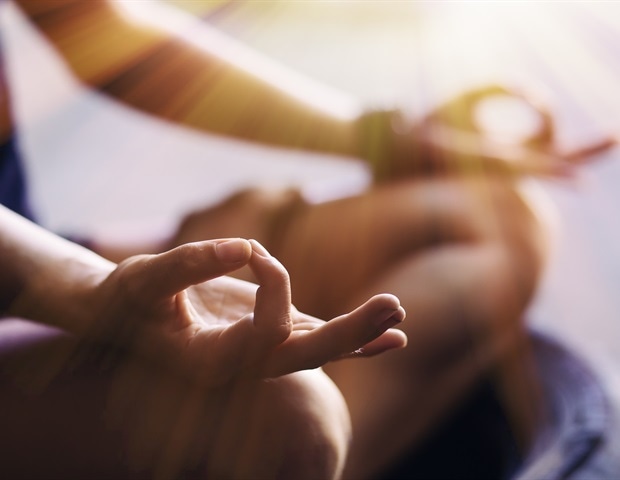
By John M. de Castro, Ph.D.
In today’s Research News article “A Systematic Review of Yoga Interventions on the Mental Health of Nursing Professionals and Students” (See summary below or view the full text of the study at: https://pmc.ncbi.nlm.nih.gov/articles/PMC12068460/ ) Arya and colleagues reviewed and summarized the published research studies on the effectiveness of yoga interventions on the mental health of nurses and nursing students. They report that the published studies found that yoga interventions significantly improved mental health including reductions in stress, depression, and burnout and significant increases in sleep quality, mindfulness, and life satisfaction.
Yoga is effective in improving mental health and well-being among nurses and students.
CMCS – Center for Mindfulness and Contemplative Studies
This and other Contemplative Studies posts are also available on the Contemplative Studies Blog http://contemplative-studies.org
Study Summary
Arya RG, Srivastava D, Divya BR, Madhu, Bhargav H. A Systematic Review of Yoga Interventions on the Mental Health of Nursing Professionals and Students. Int J Yoga. 2025;18(1):13-26. doi:10.4103/ijoy.ijoy_195_24
Abstract
This systematic review aimed to evaluate the impact of yoga interventions on preventing and alleviating mental health issues, including stress, anxiety, burnout, depression, and other related factors among nursing professionals and students. The review adhered to the PRISMA guidelines and was registered in PROSPERO (CRD42024512366). A comprehensive literature search was conducted in Google Scholar and PubMed using keywords such as “nursing students,” “nursing professionals,” “yoga interventions,” and “mental health.” Eligible studies were randomized controlled trials (RCTs) published from 1st January 2014 to 31st December 2024, involving nursing population and yoga-based interventions targeting mental health outcomes. The risk of bias was assessed using the CASP tool. The search identified 14 RCTs (967 participants, predominantly female, age range – 18 to 69 years) that met the eligibility criteria. The yoga intervention varied in duration (10 minutes to 1 hour per session), frequency (once to five times weekly), and protocols (Laughter yoga being the most common). Mental health outcomes such as stress, anxiety, burnout, mindfulness, depression, quality of sleep, and life satisfaction were assessed. Most studies reported significant improvements in these outcomes in the yoga intervention groups compared to control groups. Nine studies showed a significant stress reduction, and 3 studies found a decrease in anxiety. No adverse effects were reported, and dropout rates varied between 0% to 52.1%. Yoga was found to be effective in improving mental health and well-being among nursing professionals and students. Yoga mainly reduced stress, anxiety, burnout, and depression, suggesting its potential as a low-cost, accessible intervention for mental health management in this population. Future studies should focus on refining protocols and exploring long-term effects to establish yoga as an integral part of mental health care for nursing professionals and students.
